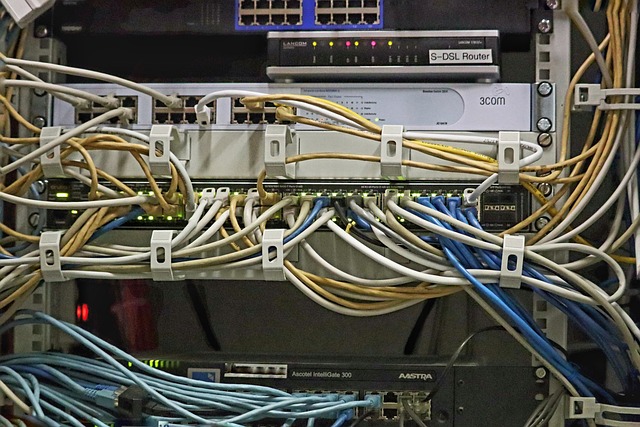# Navigating the Future of AI: Transformative Technologies and Their Impact on Everyday Life
Artificial Intelligence (AI) is no longer a concept confined to the pages of science fiction. As we venture deeper into the 21st century, AI technologies are becoming integral to various sectors, shaping the way we live, work, and interact. This article delves into the transformative technologies that AI encompasses and their profound impact on our everyday lives.
## Understanding AI and Its Transformative Technologies
To grasp the implications of AI, it is essential to define what encompasses this field. AI refers to systems that can perform tasks typically requiring human intelligence, such as visual perception, speech recognition, decision-making, and language translation. Within this broad definition, several transformative technologies have emerged, including machine learning, natural language processing (NLP), and robotics.
Machine learning, a subset of AI, enables systems to learn from data and improve over time without being explicitly programmed. This technology is at the heart of many AI applications, from recommendation systems on streaming platforms to predictive analytics in healthcare. By analyzing vast amounts of data, machine learning algorithms can identify patterns and make informed predictions, which can be life-changing in various fields.
Natural language processing, on the other hand, focuses on the interaction between computers and humans through natural language. Innovations in NLP have led to advancements in chatbots, virtual assistants, and translation services. These applications enhance user experience and facilitate communication, breaking down language barriers and making technology more accessible to everyone.
Robotics, another critical area of AI, involves the design and use of robots to perform tasks autonomously or semi-autonomously. From manufacturing floors to homes, robots are increasingly taking on roles that improve efficiency and safety. The integration of AI into robotics has led to the development of smart robots capable of learning from their environment, which can revolutionize industries ranging from agriculture to healthcare.
## AI in Daily Life: Enhancing Convenience and Efficiency
Numerous examples illustrate how AI technologies enhance convenience and efficiency in everyday life. One of the most visible applications is in smart home devices. Voice-activated assistants like Amazon’s Alexa or Google Assistant have transformed the way we interact with our homes. These devices can control lighting, adjust thermostats, and even manage grocery lists with simple voice commands, making daily routines more seamless.
Beyond the home, AI is revolutionizing transportation. The advent of autonomous vehicles promises to reshape our commuting experience. Companies like Tesla and Waymo are at the forefront of developing self-driving technology that could reduce traffic accidents, minimize congestion, and lower carbon emissions. The potential for AI to optimize traffic flow and enhance public transportation systems is also significant, leading to smarter cities and improved urban living.
Moreover, AI-driven applications are making significant strides in healthcare. Diagnostic tools powered by machine learning can analyze medical images with remarkable accuracy, assisting doctors in identifying conditions such as cancer at earlier stages. Telemedicine platforms, enhanced by AI, allow for remote consultations and personalized treatment plans, making healthcare more accessible and efficient. The integration of AI in healthcare not only improves patient outcomes but also streamlines administrative processes, reducing costs and enhancing service delivery.
## Ethical Considerations and the Future of AI
While the benefits of AI are substantial, it is crucial to address the ethical considerations that accompany its rapid advancement. Concerns about privacy, security, and job displacement are at the forefront of discussions surrounding AI technologies. As AI systems collect and analyze vast amounts of personal data, questions arise regarding data ownership and consent. Striking a balance between innovation and privacy protection is essential to ensure public trust in these technologies.
Job displacement is another pressing issue. As AI systems automate tasks traditionally performed by humans, there is a legitimate fear of job loss across various sectors. However, it is important to recognize that AI also creates new job opportunities. The demand for AI specialists, data scientists, and ethical compliance officers is on the rise, indicating a shift rather than a complete loss of employment. Reskilling and upskilling the workforce will be crucial in preparing for the future job market shaped by AI.
Looking ahead, the future of AI holds immense promise. As technologies continue to evolve, we can expect even more sophisticated applications that enhance our daily lives. Collaborative robots, or cobots, are expected to work alongside humans in various industries, improving productivity and safety. Furthermore, advancements in AI ethics and governance will play a pivotal role in ensuring that these technologies are developed and deployed responsibly.
## Conclusion: Embracing the AI Revolution
In summary, navigating the future of AI requires an understanding of its transformative technologies and their implications for everyday life. From enhancing convenience in our homes to revolutionizing healthcare and transportation, AI is poised to reshape our world in profound ways. While ethical considerations and challenges remain, embracing the AI revolution with a focus on responsible development and innovation is essential for harnessing its full potential.
As we stand on the brink of this technological transformation, it is imperative to engage in ongoing discussions about the role of AI in society. By fostering collaboration between technologists, policymakers, and the public, we can ensure that AI serves as a powerful tool for positive change, driving progress and enhancing our quality of life for generations to come.











